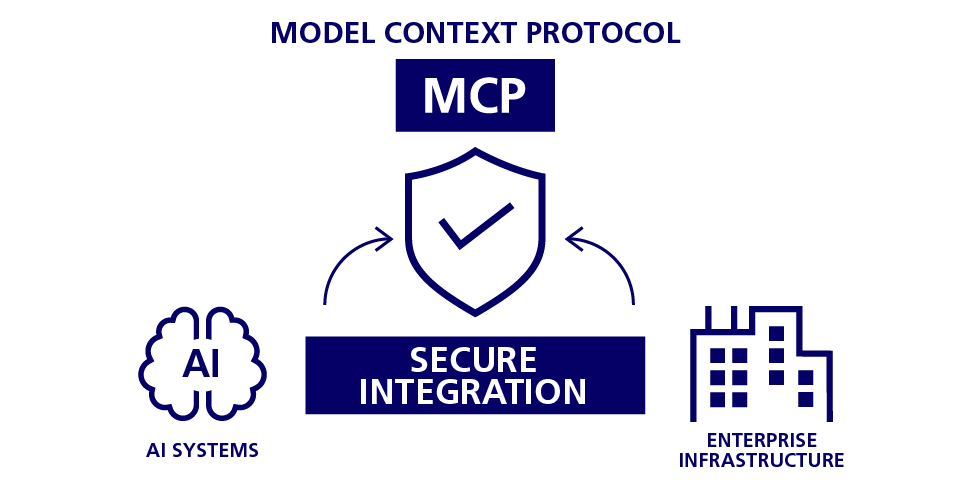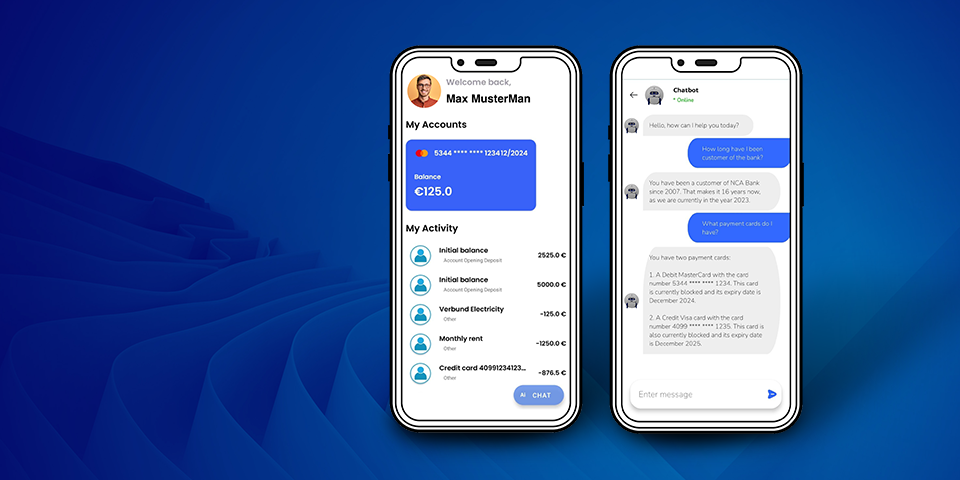Each AI implementation typically requires custom connectors, introduces new vulnerabilities, and complicates oversight frameworks. The Model Context Protocol (MCP) transforms this landscape. It enables the establishment of security through standardization – meeting the stringent requirements of even the most regulated industries:
- Reduced integration complexity: MCP replaces the need for multiple custom-built connectors with one standard connection method.
- Standardization at scale: Existing security rules, access controls, and monitoring systems work directly with AI through MCP. This means AI follows the same governance standards as all your other systems.
- Consistent access patterns: Every AI interaction uses the same approach for user authentication, permissions, and activity logging.


